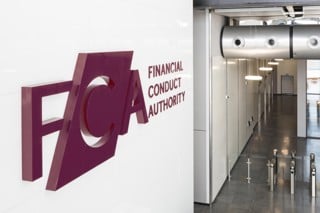The Financial Conduct Authority’s (FCA) review of motor finance has been critical of dealers, as credit brokers, for failing to follow the Consumer Credit sourcebook (CONC) handbook rules on disclosure of commission.
Published in 2014, as the FCA took responsibility for regulating consumer credit, CONC rule 4.5.3 states: “A credit broker must disclose to a customer in good time before a credit agreement or a consumer hire agreement is entered into, the existence of any commission or fee or other remuneration payable to the credit broker by the lender or owner or a third party in relation to a credit agreement or a consumer hire agreement, where the knowledge of the existence or amount of the commission could actually or potentially affect the impartiality of the credit broker in recommending a particular product, or have a material impact on the customer’s transactional decision.”
CONC rule 4.5.4 continues to set the tone: “At the request of the customer, a credit broker must disclose to the customer, in good time before a regulated credit agreement or regulated consumer hire agreement is entered into, the amount (or if the precise amount is not known, the likely amount) of any commission or fee or other remuneration payable to the credit broker by the lender or owner or a third party.”
Adrian Dally, head of motor finance at the FLA, said previous guidance on commission disclosure was “quite grey” and it wasn’t specific to motor retail. A lot of the motor finance review is spelling out very specifically what the FCA now expects from dealers.
He said: “Members were doing this voluntarily before, but now this clarifies the FCA’s views on how businesses should approach commission disclosure. It levels the playing field and having that certainty and clarity is a benefit for all.”
Karl Werner, MotoNovo Finance deputy chief executive, said the FCA’s conclusions have been clear. Dealers and other motor finance brokers fell short of the required regulatory standards.
The CONC rules on commission were not warmly welcomed by dealers when first published.
Where dealers do not disclose a commission they may called on by the regulator to defend their decision. This means they must record robust reasoning, and the processes of determining, why they believed a commission or fee would not influence the recommending of any product, nor affect the customer’s decision to sign.
Werner said: “Where any dealer’s reluctance to share the availability of commission exists, the review makes it clear that this must end now.”
Werner said the FCA has been clear on the kind of controls lenders need to have in place to ensure dealers and brokers are aware of all of their responsibilities.
This includes controls around pre-contract disclosure of the availability of commission.
However, Werner said it is also clear that implementation standards too often fall short – and this needs to change.
He said: “The road ahead outlined by the FCA will require greater oversight by lenders.
“We are committed to ensuring dealers are not just compliant with the FCA requirements, but brilliant at using finance clearly and fairly to create sales. There is nothing to fear from creating a better customer experience.”
Werner said transparency for the industry is a no-brainer and compliance with the FCA’s rules is simply a hygiene factor.
Dealers are already using finance online as a marketing tool.
Werner said that by building in commission disclosure into the finance process, there will be increased trust for customers choosing dealer finance.
He said: “I have no doubt that we will see a positive impact on consumer trust in dealer finance giving rise to greater confidence in the entire traditional dealer model.
“With this will come sustainability and longevity for the sector in the face of emerging broker models that feed on the back of dealers’ efforts.”
Ivendi chief executive James Tew also believes better solutions and processes must be put in place: “This is very much a clear shot across the bows for motor finance companies and their approach to operational oversight of introducers . The ultimate sanction is probably that full disclosure of commission at the point of sale is made mandatory.
“It may already be too late to avoid this, but the industry could certainly attempt to pre-empt any FCA action.”
Neil Smith, operations director at Imperial Cars, said customers understand dealers need to be remunerated for facilitating finance.
He does not see commission disclosure as a deterrent, but as a part of the normal sales process: “We’ll do what needs to be done to the letter of what the FCA requires. We’re certainly not going to fight it.”
Tony Denton, the owner and managing director of Batchelors Motor Group (see our interview with him on page 30), said any dealer reluctance will be due to a lack of understanding of the rules.
“With all sectors, there are always bad apples and the net is closing on them,” he said.
“Finance providers and the banks need to be accountable here. If they follow CONC, then car dealers, almost by default, will all become compliant.”
Batchelors uses fixed-rate APRs, to help customers’ comparisons. Denton said: “Customers expect us to receive remuneration for the work we do. Reputable lenders and dealers have nothing to fear.
“The alternative is for our trade to halt offering convenience and drive everyone to the banks and that would be a really bad outcome for everyone.”
A finance and insurance director at a large franchised dealer group, who asked to remain anonymous, believes much of the industry has already moved to flat commission rates in an attempt to make sure sales executives are unbiased.
Yet isn’t the FCA’s concern aimed at dealership level? Manufacturers’ finance houses continue to incentivise their franchised dealer networks to achieve high volumes of PCP renewals and repeat business, at the same time as making their offers attractive to prime customers through low APRs and deposit contributions.
The FCA hinted that these manufacturer-driven finance sales demands are a concern. Its research found PCP dominated discussions for new car sales, and in some cases the customer’s clear desire to own the vehicle outright was ignored or not given sufficient weight in the process.
“Lower monthly costs associated with PCP were generally promoted as the most attractive feature for customers when compared with other HP products. However, it was not always clear that there was sufficient balance between the benefits and downsides of various finance options offered or available,” said the FCA review.
While other dealers were confident commission disclosure would not affect the sales process, the anonymous dealer thinks it will become a barrier to getting a deal done with the customer.
“The number of questions we now have to ask during the sales process is phenomenal. You have to ask yourself if we’re doing all this for the customer or reluctantly covering ourselves for a future scenario where we could get sued?”
Comparing commissions
Neither Smith nor the dealer group F&I boss envisage a scenario where customers are shopping around to see which dealer has the lowest commission.
Smith said the key thing for consumers is whether they are happy with the deal, the APR and the monthly payments.
He said: “Consumers are fully aware of interest rates at the dealership, and personal loans. They know what’s reasonable and what isn’t. If a dealership set an APR at 19%, they simply wouldn’t sell any vehicles.
“Yes, finance is an additional revenue stream, but as long as it’s not an abhorrent level of profit and it’s not to the detriment to the consumer, I think that’s OK.”
The growth of websites such as Carwow suggests consumers want transparent pricing, and confidence that they are getting a great deal. Some industry observers question why this trend wouldn’t apply to point-of-sale finance – consumers can already visit aggregator websites to compare offers on personal loans and insurance.
The F&I boss said he thinks consumers would be surprised by how little commission there is in a car deal, so added clarity could help increase trust. He thinks part of the process should also explain that if a finance deal is ended early, the dealer will lose a percentage of their finance commission.
He said: “Customers aren’t going to go through the process of finding the right vehicle, building the deal and then do that across all other suitable vehicles to compare the level of commission at different dealerships or groups.
“They want to know they are happy with the overall deal and it’s right for them. If it’s a reasonable deal, the commission disclosure is just wallpaper, it’s there in the background.”






















Kevin Francis - 14/10/2019 16:47
Is there any law that states that car dealership must only provide the best deals for their customers